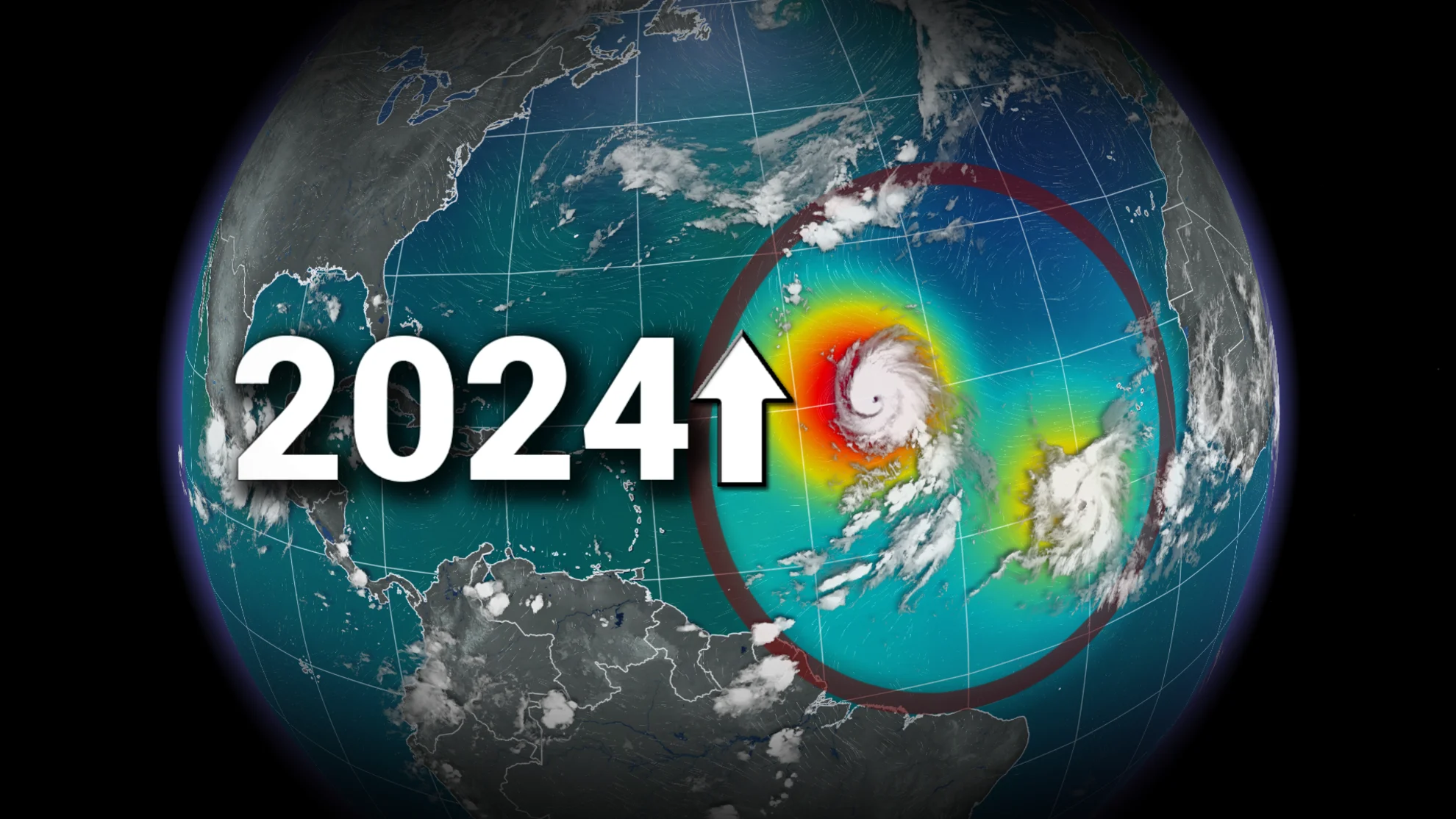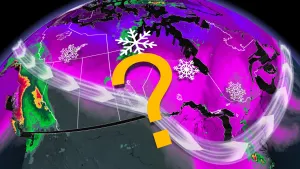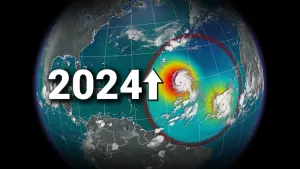
2024 Atlantic hurricane season is officially above average with 12th named storm
Kirk and Leslie are setting records in the Atlantic Basin, as favourable conditions have allowed the storms to strengthen east of where storms typically develop this late in the season
The 2024 Atlantic hurricane season now officially sits above average, as Leslie strengthens to a tropical storm, and Kirk becomes a major hurricane.
Earlier in the year, NOAA had predicted an above-normal 2024 season, with La Nina and warmer-than-average ocean temperatures being major drivers of tropical activity.
"NOAA’s outlook for the 2024 Atlantic hurricane season, which spans from June 1 to November 30, predicts an 85% chance of an above-normal season, a 10% chance of a near-normal season and a 5% chance of a below-normal season," the statement read.
Visit The Weather Network's hurricane hub to keep up with the latest on tropical developments in Canada and around the world
Despite a relatively calm start to the hurricane season, and a complete lull through August, the Atlantic basin is showing signs of a late-season surge.
Tropical Storm Leslie formed over the far eastern Atlantic late Wednesday, becoming the 12th named storm of the 2024 season, and bumping the season above average, as predicted. The average for a typical hurricane season is 11 named storms.
Leslie could strengthen into a hurricane by Friday.
"Strengthening is anticipated, and Leslie is forecast to become a hurricane in a couple of days," said the U.S. National Hurricane Center in the Thursday morning update.

This would break the old record, just set by Hurricane Kirk, for the farthest east an Atlantic hurricane has formed in the tropics this late in the year. There has never before been a hurricane named this late in the year, and this far east in the Atlantic Ocean.
A recent boom of tropical activity in the past week has also broken another record. Leslie is the fifth named storm since September 24, following Helene, Isaac, Joyce, and Kirk. That's the most named storms on record between September 24 and October 2, with the previous record sitting at three tropical storms.

Although Kirk might soon lose its easternmost hurricane record for this late in the year, the storm has just coined a new one of its own. Hurricane Kirk has rapidly intensified to a major hurricane far out in the Atlantic Ocean, making it the farthest east in the tropical Atlantic that a storm has reached major hurricane status this late in the calendar year.
RELATED: Experts predict an extremely active 2024 Atlantic hurricane season
Kirk is forecast to maintain its Category 3 strength, with some additional strengthening likely over the next day or so. As of Thursday morning, Kirk's maximum sustained winds sat at 195 km/h.
"Swells generated by Kirk are spreading westward and are expected to reach portions of the Leeward Islands on Friday, Bermuda and the Greater Antilles on Saturday, and the east coast of the United States and the Bahamas on Sunday," the NHC says. "These swells are likely to cause life-threatening surf and rip current conditions."
This is a very sensitive time for a storm to develop given that folks from Florida to North Carolina are still reeling from Hurricane Helene’s devastating strike last week.
SEE ALSO: How Hurricane Helene produced 700+ mm of rain in three days
Luckily, these two storms are far out to sea, with no significant impacts forecast to North America. Eyes will remain on Kirk however, as it curves northward into cooler waters, becomes extratropical and eventually takes aim at Europe next week.
Experts predict with near certainty, that the first two weeks of October will feature above normal tropical activity. That's part in thanks to favourable development conditions east of Africa, and abnormally warm ocean waters.
Historically speaking, more than half of all hurricane activity in the Atlantic basin occurs after Labour Day. The hurricane season runs until November 30.










